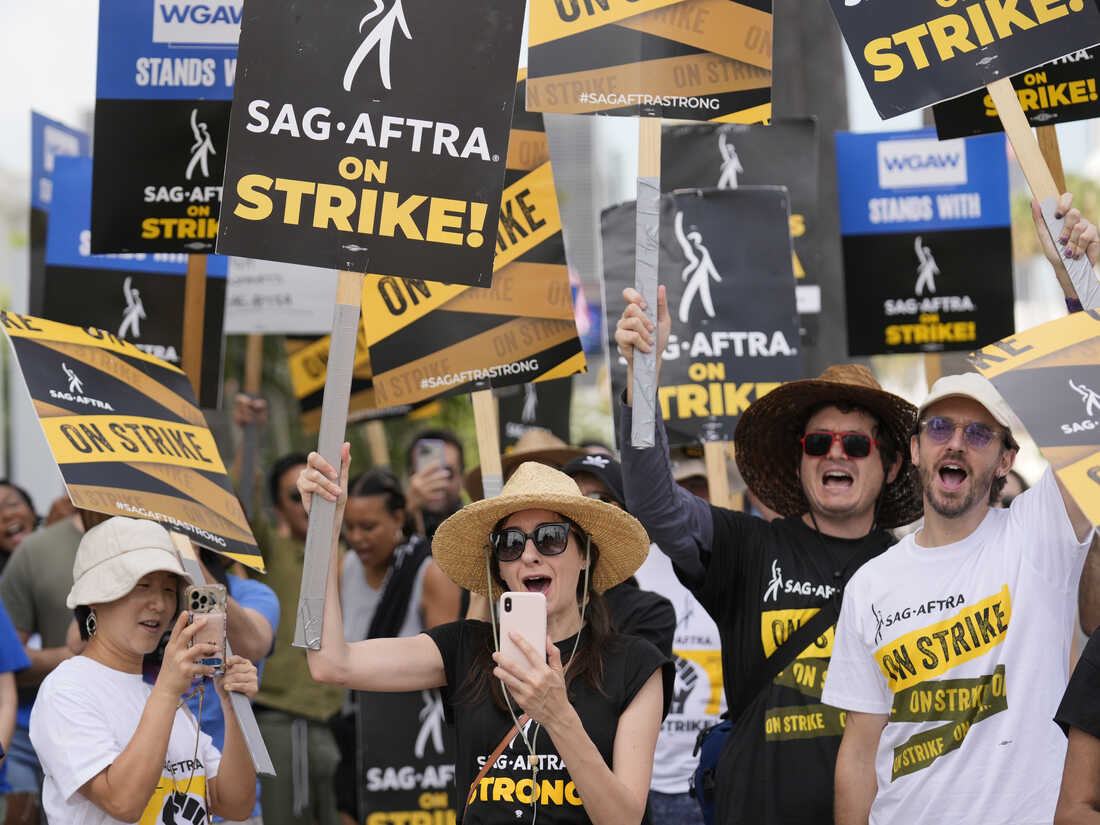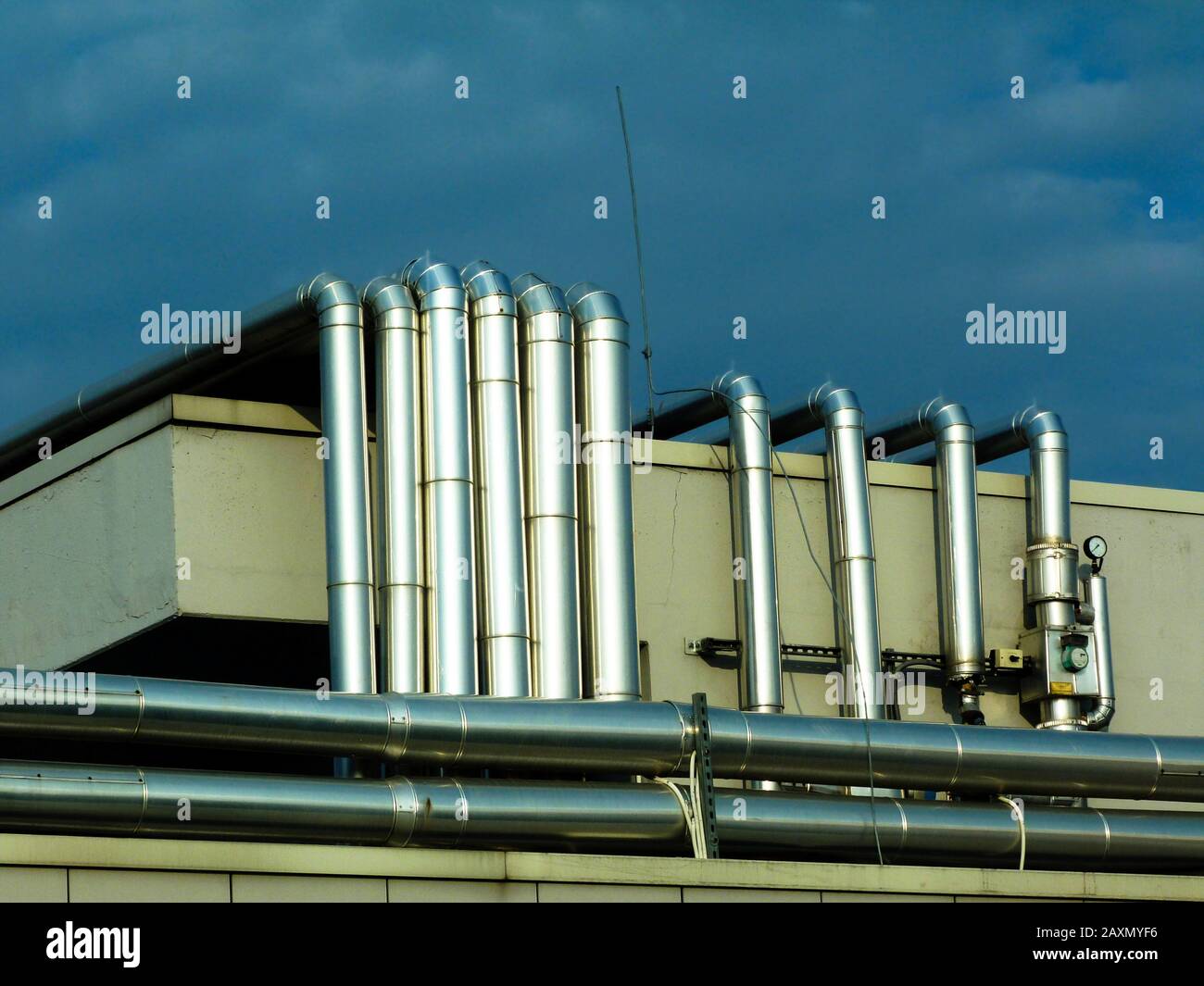Actors Join Writers' Strike: What This Means For Hollywood Productions

Table of Contents
The Combined Power of the WGA and SAG-AFTRA Strike
The simultaneous strike by both the WGA and SAG-AFTRA represents a seismic shift in the power dynamic between labor and management in Hollywood. The combined impact is far greater than the sum of its parts. These two powerful unions, representing writers and actors, respectively, possess significant leverage when acting in unison. This joint action brings almost all aspects of film and television production to a halt.
- Near-total shutdown of major film and television productions: With both writers and actors refusing to work, almost all major productions are at a standstill, from big-budget blockbusters to daily television series.
- Impact on late-night shows, award ceremonies, and promotional events: The strike significantly affects late-night talk shows, award ceremonies like the Emmys and the Golden Globes, and the promotion of upcoming films and TV shows. These events rely heavily on both writers and actors' participation.
- Increased pressure on studios and streaming services to negotiate: The combined strike puts immense pressure on studios and streaming giants like Netflix, Disney, Amazon, and Apple to seriously consider the unions' demands and come to a fair agreement. The economic losses are substantial, creating a strong incentive to negotiate.
Key Demands of the Actors' Strike
SAG-AFTRA's decision to join the writers' strike is driven by several key issues, reflecting the changing landscape of the entertainment industry. The core concerns revolve around fair wages, residuals in the streaming era, and protections against the increasing use of artificial intelligence (AI).
- Fair compensation for streaming projects (residuals): Traditional residual payments, which actors receive for reruns and other uses of their work, have been significantly eroded by the rise of streaming services. SAG-AFTRA is pushing for fairer compensation models that reflect the widespread popularity and profitability of streaming platforms.
- Regulation of the use of AI in the industry: The increasing use of AI in film and television production presents a major threat to actors' livelihoods and creative control. SAG-AFTRA is demanding strong regulations to prevent the exploitation of actors' likenesses and performances through AI.
- Improvements in health and pension benefits: The union seeks improved health and pension benefits for its members, particularly given the precarious nature of acting careers and the increasing cost of healthcare.
- Better working conditions on set: The strike also aims to address issues related to working conditions on set, such as long hours, unreasonable demands, and harassment.
The Impact on Streaming Services
The Hollywood strike, particularly the actors' strike, presents unique challenges for streaming services. Their business model is entirely reliant on constant content creation and release.
- Delayed release schedules for new shows and seasons: The strike directly impacts the release of new seasons of popular shows and the premiere of new original content. This leads to delays in the release schedules, potentially impacting viewer engagement and subscriber growth.
- Reduced content output and potential impact on subscriber growth: The lack of new content could lead to subscriber churn, as viewers seek entertainment elsewhere. This ultimately affects the revenue streams of streaming platforms.
- Increased pressure to reach agreements with the unions: Streaming services are facing substantial pressure to negotiate fair agreements with the unions, as the economic repercussions of the strike are significant.
The Economic Ripple Effect of the Hollywood Strike
The impact of the actors' strike and writers' strike extends far beyond the Hollywood studios and talent agencies. It creates a ripple effect throughout the economy.
- Job losses for crew members, support staff, and other related industries: Thousands of crew members, including camera operators, editors, and production assistants, are facing unemployment due to the production shutdown. This also impacts related industries like catering, transportation, and location services.
- Economic downturn in cities heavily reliant on film production: Cities like Los Angeles, New York, and Atlanta, which rely heavily on film and television production, are experiencing an economic downturn due to the strike.
- Impact on tourism and hospitality sectors: The decline in film production also impacts related tourism and hospitality sectors, as fewer visitors come to these cities for filming-related activities.
Potential Resolutions and the Future of Hollywood Productions
Predicting the outcome of the actors' strike and writers' strike is difficult. However, several potential scenarios could unfold.
- Possible scenarios for settlement and the timeline for a resolution: Negotiations could lead to a swift resolution, or the strike could drag on for months, depending on the willingness of both sides to compromise. The economic pressure on both sides could force a quicker resolution.
- Potential changes to the industry's labor practices in the future: Regardless of the outcome, this strike is likely to lead to significant changes in the industry's labor practices, possibly impacting how actors and writers are compensated and protected.
- The long-term impact on the production process and the creative landscape: The strike could lead to increased use of AI, potential changes in the production pipeline, and shifts in creative approaches within Hollywood.
Conclusion
The combined actors' and writers' strike represents a pivotal moment for Hollywood. The unprecedented shutdown highlights long-standing issues of fair compensation, the impact of streaming, and the ethical considerations of AI in the industry. The resolution of this strike will significantly shape the future of film and television production. The actors' strike, coupled with the ongoing writers' strike, presents a critical juncture for the entertainment industry.
Call to Action: Stay informed about the evolving situation of the actors' strike and writers' strike to understand its lasting impact on the future of Hollywood productions. Follow news outlets and union updates for the latest developments on this crucial moment in entertainment history. The future of your favorite shows and movies depends on it.

Featured Posts
-
 Fortnite Sabrina Carpenter Concert New Skins Music And Event Details
May 06, 2025
Fortnite Sabrina Carpenter Concert New Skins Music And Event Details
May 06, 2025 -
 Nqabt Almhndsyn Bghzt Thdythat Hwl Khtt Ieadt Aliemar
May 06, 2025
Nqabt Almhndsyn Bghzt Thdythat Hwl Khtt Ieadt Aliemar
May 06, 2025 -
 Busana Miley Cyrus Ekspresi Berbagai Kisah
May 06, 2025
Busana Miley Cyrus Ekspresi Berbagai Kisah
May 06, 2025 -
 Tom Holland And Zendaya On Future Family Plans
May 06, 2025
Tom Holland And Zendaya On Future Family Plans
May 06, 2025 -
 Understanding Fortnites Building Mechanics A Comprehensive Tutorial
May 06, 2025
Understanding Fortnites Building Mechanics A Comprehensive Tutorial
May 06, 2025
